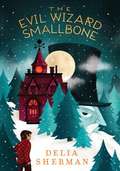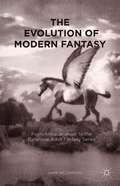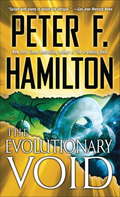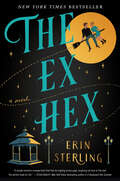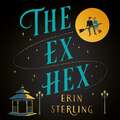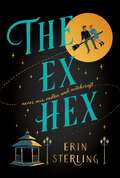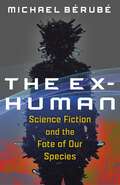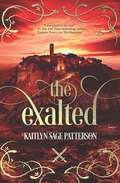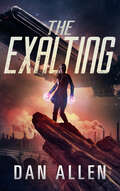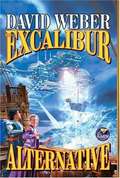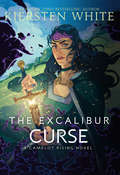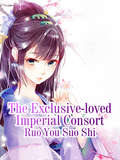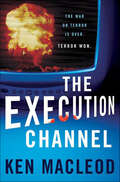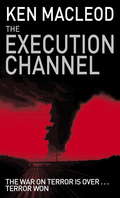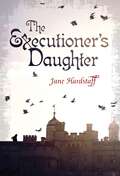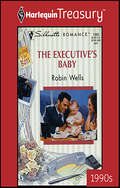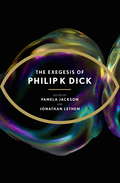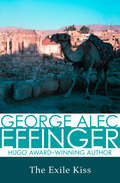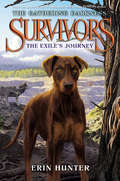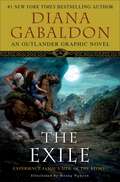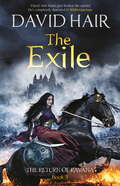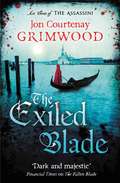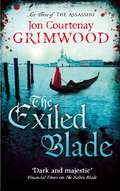- Table View
- List View
The Evil Wizard Smallbone
by Delia ShermanIn a hilarious tale reminiscent of T. H. White, a lost boy finds himself an unlikely apprentice to the very old, vaguely evil, mostly just grumpy Wizard Smallbone.<P><P> When twelve-year-old Nick runs away from his uncle’s in the middle of a blizzard, he stumbles onto a very opinionated bookstore. He also meets its guardian, the self-proclaimed Evil Wizard Smallbone, who calls Nick his apprentice and won’t let him leave, but won’t teach him magic, either. It’s a good thing the bookstore takes Nick’s magical education in hand, because Smallbone’s nemesis—the Evil Wizard Fidelou—and his pack of shape-shifting bikers are howling at the borders. Smallbone might call himself evil, but compared to Fidelou, he’s practically a puppy. And he can’t handle Fidelou alone. <P> Wildly funny and cozily heartfelt, Delia Sherman’s latest is an eccentric fantasy adventure featuring dueling wizards, enchanted animals, and one stray boy.
The Evolution of Modern Fantasy
by Jamie WilliamsonIn this comprehensive study, James Williamson traces the literary history of the fantasy genre from the eighteenth century to its coalescence following the success of Tolkien's work in the 1960s. While some studies have engaged with related material, there has been no extended study specifically exploring the roots of this now beloved genre. Using the Ballantine Adult Fantasy Series (1969-74) as the touchpoint in identifying what Williamson terms the pre-genre fantasy canon, The Evolution of Modern Fantasy contends that what became termed fantasy after the Tolkien boom had its beginnings in a creative literary response to eighteenth century antiquarianism.
The Evolutionary Void (Commonwealth: The Void Trilogy #3)
by Peter F. HamiltonBONUS: This edition contains Peter F. Hamilton's short story, If At First...Exposed as the Second Dreamer, Araminta has become the target of a galaxywide search by others equally determined to prevent--or facilitate--the pilgrimage into the Void. An indestructible microuniverse, the Void may contain paradise, but it is also a deadly threat. For the reality that exists inside its boundaries demands energy drawn from planets, stars, galaxies--from everything that lives.Meanwhile, the story of Edeard, the Waterwalker, continues to unfold. With time running out, Inigo, the First Dreamer, must decide whether to release Edeard's dangerous final dream. And Araminta must choose whether to run from her responsibilities or face them down, with no guarantee of success or survival. But all these choices may be for naught if the leader of a rival faction enters the Void. For it is not paradise she seeks there, but dominion. axies . . . from everything that lives.Meanwhile, the parallel story of Edeard, the Waterwalker--as told through a series of addictive dreams communicated to the gaiasphere via Inigo, the First Dreamer--continues to unfold. But now the inspirational tale of this idealistic young man takes a darker and more troubling turn as he finds himself faced with powerful new enemies--and temptations more powerful still. With time running out, a repentant Inigo must decide whether to release Edeard's final dream: a dream whose message is scarcely less dangerous than the pilgrimage promises to be. And Araminta must choose whether to run from her unwanted responsibilities or face them down, with no guarantee of success or survival. But all these choices may be for naught if the monomaniacal Ilanthe, leader of the breakaway Accelerator Faction, is able to enter the Void. For it is not paradise she seeks there, but dominion. From the Hardcover edition.
The Ex Hex: A Novel
by Erin SterlingNew York Times bestselling author Rachel Hawkins, writing as Erin Sterling, casts a spell with a spine-tingling romance full of wishes, witches, and hexes gone wrong. <p><p> Nine years ago, Vivienne Jones nursed her broken heart like any young witch would: vodka, weepy music, bubble baths…and a curse on the horrible boyfriend. Sure, Vivi knows she shouldn’t use her magic this way, but with only an “orchard hayride” scented candle on hand, she isn’t worried it will cause him anything more than a bad hair day or two. That is until Rhys Penhallow, descendent of the town’s ancestors, breaker of hearts, and annoyingly just as gorgeous as he always was, returns to Graves Glen, Georgia. What should be a quick trip to recharge the town’s ley lines and make an appearance at the annual fall festival turns disastrously wrong. With one calamity after another striking Rhys, Vivi realizes her silly little Ex Hex may not have been so harmless after all. Suddenly, Graves Glen is under attack from murderous wind-up toys, a pissed off ghost, and a talking cat with some interesting things to say. Vivi and Rhys have to ignore their off the charts chemistry to work together to save the town and find a way to break the break-up curse before it’s too late.
The Ex Hex: Never mix witchcraft and vodka . . . a spellbinding TikTok-sensation rom-com!
by Erin SterlingThe TikTok sensation! The Ex Hex is a spellbinding rom-com with a twist, think Practical Magic in Gilmore Girls' Stars Hollow . . .New York Times bestselling author Rachel Hawkins, writing as Erin Sterling, casts a spell with a spine-tingling romance full of wishes, witches, and hexes gone wrong..............................................................................................'You broke my heart, Rhys Penhallow. And we curse you. You and your whole stupid, hot line.' Vivienne Jones handled the biggest break-up of her life the way that any witch would: vodka, bubble baths, and a curse on her ex. That was nine years ago. Now Rhys Penhallow, descendant of the town's founders, breaker of hearts and still irritatingly gorgeous, is back. Rhys has returned to the quaint town of Graves Glen to recharge the ley lines and make an appearance at the annual fall festival. But when his every move results in calamity, Vivi realises that hexing her ex might not have been so harmless after all . . . As the curse starts to affect the magic of the town, resulting in murderous wind-up toys, an outraged ghost, and a surprisingly talkative cat, Vivi and Rhys must put their personal feelings aside and work together to break the curse and save not just the town, but also Rhys's life.(P) 2021 HarperCollins Publishers
The Ex Hex: Never mix witchcraft and vodka . . . a spellbinding second-chance rom-com!
by Erin SterlingThe Ex Hex is a spellbinding rom-com with a twist, think Practical Magic in Gilmore Girls' Stars Hollow . . .New York Times bestselling author Rachel Hawkins, writing as Erin Sterling, casts a spell with a spine-tingling romance full of wishes, witches, and hexes gone wrong.'Sterling's novel is ultimately crisp and sweet, like biting into the perfect caramel apple, and makes for an equally delicious autumn treat that will sweep readers up into a world of whimsical magic' Kirkus'A spooky romantic comedy treat that had me sighing at one page, laughing out loud at the next. The Ex Hex is the perfect book for fall' Tessa Bailey, New York Times bestselling author.............................................................................................'You broke my heart, Rhys Penhallow. And we curse you. You and your whole stupid, hot line.' Vivienne Jones handled the biggest break-up of her life the way that any witch would: vodka, bubble baths, and a curse on her ex. That was nine years ago. Now Rhys Penhallow, descendant of the town's founders, breaker of hearts and still irritatingly gorgeous, is back. Rhys has returned to the quaint town of Graves Glen to recharge the ley lines and make an appearance at the annual fall festival. But when his every move results in calamity, Vivi realises that hexing her ex might not have been so harmless after all . . . As the curse starts to affect the magic of the town, resulting in murderous wind-up toys, an outraged ghost, and a surprisingly talkative cat, Vivi and Rhys must put their personal feelings aside and work together to break the curse and save not just the town, but also Rhys's life..............................................................................................Praise for The Ex Hex, an unmissable, autumnal treat!'Filled with delightful witchiness and humor, this playful romantic comedy from Sterling explores second chances and self-discovery . . . The result is a fluffy Halloween treat' Publishers Weekly 'A delightful and witty take on witchy mayhem' PopSugar'You can't help but smile and laugh while reading The Ex Hex . . . Perfect for anyone who needs more witchy content in their lives, loves Hocus Pocus, Charmed and Sabrina the Teenage Witch, and above all, anyone who's in need of a fluffy romcom!' The Nerd DailyEarly readers are LOVING The Ex Hex!'I loved and adored everything about this book . . . everything I was looking for! 5/5 stars!''The vibes were immaculate''One of the best rom-coms I've read all year! . . . It's Practical Magic meets The Gilmore Girls and I am a hundred percent OBSESSED!''Perfect for curling up with on an Autumn's evening. Definite Gilmore Girls vibes but with more magic and sex''A fantastic romance with more than a touch of magic'
The Ex-Human: Science Fiction and the Fate of Our Species
by Michael BérubéFacing threats like climate change and nuclear warfare, science fiction authors have conjured apocalyptic scenarios of human extinction. Can such gloomy fates help us make sense of our contemporary crises? How important is the survival of our species if we wind up battling for an Earth that has become an unhabitable hellscape? What other possible futures do narratives of the end of humanity allow us to imagine?Michael Bérubé explores the surprising insights of classic and contemporary works of SF that depict civilizational collapse and contemplate the fate of Homo sapiens. In a lively, conversational style, he considers novels by writers including Ursula K. Le Guin, Margaret Atwood, Liu Cixin, Philip K. Dick, and Octavia Butler, as well as films that feature hostile artificial intelligence, such as 2001: A Space Odyssey, Blade Runner, and the Terminator and Matrix franchises. Bérubé argues that these works portray a future in which we have become able to see ourselves from the vantage point of something other than the human. Though framed by the possibility of human extinction, they are driven by a vision of the “ex-human”—a desire to imagine that another species is possible. For all science fiction readers worried about the fate of humanity, The Ex-Human is an entertaining yet sobering account of how key novels and films envision the world without us.
The Exalted (The Alskad Empire Chronicles)
by Kaitlyn Sage PattersonSince the founding of the Empire, Alskad has been ruled by the singleborn…but the new heir to the throne carries a secret that will change everythingWhen an assassin’s bullet takes the life of Queen Runa and allows an impostor to steal the throne, Bo Trousillion is forced to flee the empire that is his birthright. With few choices left and burdened with a secret that could disinherit him, Bo pursues an alliance with Noriava, the Queen of Denor, but the devious royal ensnares him in a trap and demands a huge price for her aid.To the south, Vi Abernathy—Bo’s secret twin—joins a ragtag army of resistance fighters, determined to free Alskad and the colony of Ilor from the control of the corrupt temple and its leaders. But as Vi discovers a strength she never knew she had and prepares to rejoin her brother in Alskad, news of the coup and Bo’s narrow escape arrive in Ilor.Determined to rescue Bo, Vi sails to Denor with the rebels at her side and a plan to outwit Queen Noriava, knowing there’s only one way she and Bo will be able to save the Alskad Empire—together.
The Exalting
by Dan Allen&“The perfect alchemy of science fiction and magic . . . I can&’t wait for the next installment!&”- C. David Belt, The Arawn Prophecy and Time&’s PlagueSeventeen-year-old Dana has discovered a bloodstone. It&’s crystals have the power to control the magic and wills of an entire city-full of people. Used properly, the stone would give Dana nearly limitless power, but where Dana grew up, bloodstones are forbidden. She has no idea how to use one, and even if she did, using the stone without permission comes with a death penalty.Dana isn&’t the only one who wants to use the bloodstone. Powerful and bloodthirsty magicians from across the sea are determined to bring it back to their supreme leader. And Dana is in their way.While Dana struggles on her home planet Xahna, the rest of the universe is at war. Unbeknownst to her and the inhabitants of her world, the entire universe is coming to use Xahna as a battlefield. Marine Jet Naman leads his advance landing team to reach the planet Xahna before their enemies.The fate of the galaxy lies in the hands of two young people who have never met. Outnumbered and outgunned, their only chance to survive is each other.
The Excalibur Alternative
by David WeberThe races which ruled the Galactic Federation knew they were vastly superior to the inferior species restricted to the narrow confines of their own star systems by the crudity of their technology . . . and they had every intention of keeping things that way. Yet all good things come to an end, and the Galactics made one mistake. It didn't seem all that terrible at first, only a single merchant guild which bought itself a Roman legion to use as enslaved sepoys on the primitive worlds where they weren't permitted to use their own weapons to force trading concessions. But the Romans were too good at what they did, and a desperate competing guild decided that the only way it could continue to compete was if it had Romans of its own. Unfortunately, Roman legions were no longer available, so the competing guild had to settle for something else: English longbowmen on their way to the Battle of Crecy. Roman legions make dangerous pets . . . but English longbowmen are even worse. It may take a century or so, but the Galactics are about to discover what happens when the sword finally comes out of the stone.
The Excalibur Curse (Camelot Rising Trilogy #3)
by Kiersten WhiteThe gripping conclusion to the acclaimed Arthurian fantasy trilogy from New York Times bestselling author Kiersten White finds Guinevere questioning everything—friends and enemies, good and evil, and, most of all, herself.While journeying north toward the Dark Queen, Guinevere falls into the hands of her enemies. Behind her are Lancelot, trapped on the other side of the magical barrier they created to protect Camelot, and Arthur, who has been led away from his kingdom, chasing after false promises. But the greatest danger isn&’t what lies ahead of Guinevere—it&’s what&’s been buried inside her. Vowing to unravel the truth of her past with or without Merlin&’s help, Guinevere joins forces with the sorceress Morgana and her son, Mordred—and faces the confusing, forbidden feelings she still harbors for him. When Guinevere makes an agonizing discovery about who she is and how she came to be, she finds herself with an impossible choice: fix a terrible crime, or help prevent war.Guinevere is determined to set things right, whatever the cost. To defeat a rising evil. To remake a kingdom. To undo the mistakes of the past...even if it means destroying herself.Guinevere has been a changeling, a witch, a queen—but what does it mean to be just a girl?
The Exclusive-loved Imperial Consort: Volume 1 (Volume 1 #1)
by Ruo YousuoshiModern girl ling ruofei after experiencing a nightmare was taken away by two people in black necklace because of chasing them through the name of the six worlds of the other world p p in the six crystal crystal world of amethyst country ling ruofei met amethyst emperor purple night feather was attacked by its bow and arrow coma wake up by words and flirtation disgusted with its heart after the escape from the amethyst palace on the way ling ruofei met the priest qi wing is performing a sacrificial ceremony surprised for the sky p p god yu yi ling ruofei is the legend of the six falls need to find the guard of the six holy priests to return to the original world so ling ruofei with purple night feather and qi wing set foot on the journey a difficult journey purple night feathers look cynical with superb fencing looking after its lingrefei and fuzziness and qi wing at spell church lingrefei simple self-defense is used to protect themselves the two different talent let lingrefei am very self-abased realizing his incompetence to xuan the south of the underworld at the same time with a bat and injured wing to heal think qi wing and ling ruofei escape purple night feather led the army to pursue and come qi wing and purple night feather relationship cracks p p ling ruofei and qi wing was lost in the escape strayed into the cloud field met the cloud field overlord strong and proud of he lianqin ling ruofei was forced to become the imperial concubine of he lianqin he was respected by the emperor because of his heavenly status but also envied by other concubines after escape from the hand of helianqin ling ruofei started to set up their own tiannu army trying to unify the whole six boundaries tiannu army recovered the cloud man boundary against the rule of all countries but finally defeated by the purple night feather hand p p ling ruofei can not be a prisoner threw himself into the lake but therefore recalled his previous life is the emperor of the six world god night favorite concubine flower glass in the myth era and the six highest gods in the war reincarnation for the modern girl and after the defeat by god punish night emperor this life is purple night feather restore the memory of the former life ling ruofei and injured purple night feather reunion bring him to his life of modern healing the two decided to return to the sixth world after recovery to save the last priest imprisoned by the polar god and to rebuild the destroyed night palace
The Execution Channel
by Ken MacLeodIt's after 9/11. After the bombing. After the Iraq war. After 7/7. After the Iran war. After the nukes. After the flu. After the Straits. After Rosyth. In a world just down the road from our own, on-line bloggers vie with old-line political operatives and new-style police to determine just where reality lies.James Travis is a British patriot and a French spy. On the day the Big One hits, Travis and his daughter must strive to make sense of the nuclear bombing of Scotland and the political repercussions of a series of terrorist attacks. With the information war in full swing, the only truth they have is what they're able to see with their own eyes. They know that everything else is--or may be--a lie.At the Publisher's request, this title is being sold without Digital Rights Management Software (DRM) applied.
The Execution Channel: Novel
by Ken MacLeod'Distinctive, politically challenging, both tantalizing and satisfying.' - Kirkus Reviews'This man's going to be a major writer.' - Iain BanksFighting has spread across the Middle East and Central Asia to the borders of China. In the US, refugees from climate-change disaster subsist in FEMA camps. Images of official executions circulate on the Internet like al Qaeda videos. State agencies sponsor conspiracy theories as cover-ups. As the troops of the last superpower stand astride the last of the oil, China and Russia aren't the only states considering their options: certain nations of Old Europe are quietly preparing for the worst.James Travis is a middle-aged middle manager in a software company. He has a son in the army, a daughter in a peace-protest camp outside a USAF base, and a compromising relationship with a foreign intelligence service. When his cover is blown hours before a nuclear explosion destroys the base, Travis, his son, and his daughter are all in serious trouble. And as the spooks and disinformation specialists focus their efforts on his capture, Travis knows that all it will take is one mistake and his only memorial will be another grainy video on . . . The Execution Channel.Ken MacLeod's most relevant and accessible novel to date.Books by Ken MacLeod:Fall RevolutionThe Star FractionThe Stone CanalThe Cassini DivisionThe Sky RoadEngines of LightCosmonaut KeepDark LightEngine CityCorporation Wars TrilogyDissidenceInsurgenceEmergenceNovelsThe Human FrontNewton's WakeLearning the WorldThe Execution ChannelThe Restoration GameIntrusionDescent
The Executioner's Daughter
by Jane HardstaffAll her life, Moss has lived in the Tower of London with her father, who serves as the executioner for King Henry VIII. Prisoners condemned to death must face Pa and his axe—and Moss catches their severed heads. Her father insists he has no choice: if he leaves the Tower, he will be killed. But Moss can't bear to be the executioner's daughter any longer. When she finally finds a way out of the Tower, she discovers the river holds more dangers than she imagined—including the Riverwitch's curse. The Riverwitch once helped Moss's family in exchange for a terrible bargain; now she expects Moss to pay the debt.
The Executive's Baby (Loving the Boss)
by Robin WellsLovingTheBossMEMOTo: The Single Women in the OfficeFrom: Rachel Sinclair, Bride in WaitingRe: My Ex-Flame Has Returned!I can't decide if this is the best day of my life or the worst. I thought I'd never see Nick Delaney again, but imagine my surprise when he showed up in my office declaring his need for me-as live-in nanny to his orphaned niece! I used to dream about the sexy businessman proposing marriage, but thankfully I'm over that. That is, I was-until he kissed me....Six friends dream of marrying their bosses in this delightful new series.Watch for Patricia's story in May.
The Exegesis of Philip K Dick
by Philip K. DickBased on thousands of pages of typed and handwritten notes, journal entries, letters, and story sketches, The Exegesis of Philip K. Dick is the magnificent and imaginative final work of an author who dedicated his life to questioning the nature of reality and perception, the malleability of space and time, and the relationship between the human and the divine. Edited and introduced by Pamela Jackson and Jonathan Lethem, this will be the definitive presentation of Dick's brilliant, and epic, final work. In The Exegesis, Dick documents his eight-year attempt to fathom what he called "2-3-74", a postmodern visionary experience of the entire universe "transformed into information". In entries that sometimes ran to hundreds of pages, Dick tried to write his way into the heart of a cosmic mystery that tested his powers of imagination and invention to the limit, adding to, revising, and discarding theory after theory, mixing in dreams and visionary experiences as they occurred, and pulling it all together in three late novels known as the VALIS trilogy. In this abridgment, Jackson and Lethem serve as guides, taking the reader through the Exegesis and establishing connections with moments in Dick's life and work.
The Exile Kiss (The Budayeen Cycle #3)
by George Alec EffingerFrom a Nebula Award winner: A &“phenomenal,&” action-packed tale of crime, corruption, and cybernetics (Locus). Set in a divided near future, The Exile Kiss is author George Alec Effinger&’s third book about the high-tech Arab ghetto called the Budayeen. It is a world filled with mind- or mood-altering drugs for any purpose; brains enhanced by electronic hardware, with plug-in memory additions and new personalities; and bodies shaped to perfection by surgery. Marid Audran, having risen from the rank of street hustler, is now an enforcer for Friedlander Bey, one of the most feared men in the Budayeen. But betrayal and exile send Marid and Bey out into the lifeless Arabian desert. Can they survive on their own? Will they make it back into hostile territory? Will they find their revenge? With this culmination of the sequence of Marid books, readers will quickly understand why this series is considered one of the great works of modern SF and a defining example of the cyber-punk genre.
The Exile Waiting
by Vonda N. McintyreMischa is an orphan who survives by stealing. If her telepathic abilities were known, she would be exiled to the underground. Jan Hikaru is wandering the galaxy, fleeing his father's irrationality. And Subtwo is half of the result of a human experiment. Their lives converge on Earth, which is tecnologically advanced but has regressed socially. This is a complex and intricate novel. Note: for the reader's information, the second page of the book had some uncorrectable scanning errors, but after that the quality is fine.
The Exile's Journey (Survivors: The Gathering Darkness #5)
by Erin Hunter Julia Green Laszlo KubinyiA loyal dog must make her way alone in this gripping fifth book in the second Survivors series.From Erin Hunter, #1 nationally bestselling author of Warriors, Survivors is full of “wild and wonderful adventure” (Kirkus Reviews; starred review) that will thrill fans of Spirit Animals and Wings of Fire.Storm is in exile—and though she’s finally free of the suspicion of her Packmates, she feels more lost than ever. There are only two dogs she knows will never give up on her: Arrow and his mate, Bella.To find them, Storm must fight through longpaw dangers, Leashed Dogs, and a forbidding pack of wolves, all in search of a place where she might finally belong.
The Exile: An Outlander Graphic Novel (Outlander)
by Diana GabaldonDiana Gabaldon&’s brilliant storytelling has captivated millions of readers in her bestselling and award-winning Outlander saga. Now, in her first-ever graphic novel, Gabaldon gives readers a fresh look at the events of the original Outlander: Jamie Fraser&’s side of the story, gorgeously rendered by artist Hoang Nguyen. After too long an absence, Jamie Fraser is coming home to Scotland—but not without great trepidation. Though his beloved godfather, Murtagh, promised Jamie&’s late parents he&’d watch over their brash son, making good on that vow will be no easy task. There&’s already a fat bounty on the young exile&’s head, courtesy of Captain Black Jack Randall, the sadistic British officer who&’s crossed paths—and swords—with Jamie in the past. And in the court of the mighty MacKenzie clan, Jamie is a pawn in the power struggle between his uncles: aging chieftain Colum, who demands his nephew&’s loyalty—or his life—and Dougal, war chieftain of Clan MacKenzie, who&’d sooner see Jamie put to the sword than anointed Colum&’s heir.And then there is Claire Randall—mysterious, beautiful, and strong-willed, who appears in Jamie&’s life to stir his compassion . . . and arouse his desire. But even as Jamie&’s heart draws him to Claire, Murtagh is certain she&’s been sent by the Old Ones, and Captain Randall accuses her of being a spy. Claire clearly has something to hide, though Jamie can&’t believe she could pose him any danger. Still, he knows she is torn between two choices—a life with him, and whatever it is that draws her thoughts so often elsewhere. Step into the captivating, passionate, and suspenseful world of The Exile, and experience the storytelling magic of Diana Gabaldon as never before.
The Exile: The Return of Ravana Book 3 (The Return of Ravana #3)
by David HairRavindra is back, and close to his dream of becoming the Demon King Ravana once and for all - unless Vikram, Amanjit, Deepika and Ras find their own powers, evil will overwhelm the world . . .Bollywood superstar Sunita Ashoka's reality show Swayamvara Live! has ended in bloodshed and disaster, and Vikram, Amanjit and Rasita are on the run, accused of her murder. And just like the heroes of the Ramayana, they soon find themselves beset by the same perils as Rama, Laksmana and Sita.When an unexpected death forces Vikram into the open, they start to despair - but there is some hope: Amanjit's warrior skills are returning, Rasita is beginning to remember her own past lives, and Deepika is awakening to terrifying new powers. But the enemy, Ravindra, has also found allies: the nightmarish Rakshasa army.Memories and legends are coming alive all over India. The fight to the finish has begun . . .'David Hair hasn't just broken the mould. He's completely shattered it' - Bibliosanctum on The Pyre
The Exile: The Return of Ravana Book 3 (The\return Of Ravana Ser. #3)
by David HairRavindra is back, and close to his dream of becoming the Demon King Ravana once and for all - unless Vikram, Amanjit, Deepika and Ras find their own powers, evil will overwhelm the world . . .Bollywood superstar Sunita Ashoka's reality show Swayamvara Live! has ended in bloodshed and disaster, and Vikram, Amanjit and Rasita are on the run, accused of her murder. And just like the heroes of the Ramayana, they soon find themselves beset by the same perils as Rama, Laksmana and Sita.When an unexpected death forces Vikram into the open, they start to despair - but there is some hope: Amanjit's warrior skills are returning, Rasita is beginning to remember her own past lives, and Deepika is awakening to terrifying new powers. But the enemy, Ravindra, has also found allies: the nightmarish Rakshasa army.Memories and legends are coming alive all over India. The fight to the finish has begun . . .'David Hair hasn't just broken the mould. He's completely shattered it' - Bibliosanctum on The Pyre
The Exiled Blade (The Assassini #3)
by Jon Courtenay GrimwoodSnow shrouds Venice in cold darkness, ice fills the canals, and a thousand ghosts pluck at the shadow's edge.A violent attack on Lady Giulietta's son forces Tycho from his new-found happiness and back into the treacherous intrigue of the court. For Giulietta's sake he would go to the world's end to track down those responsible.As Venice teeters on the brink of civil war, its warring families prepare to discover who is a player and who a pawn in the coming struggle for power. The Exiled Blade is the climatic finale to Tycho's story.
The Exiled Blade: Book 3 of the Assassini (Assassini #3)
by Jon Courtenay GrimwoodSnow shrouds Venice in cold darkness, ice fills the canals and a thousand ghosts pluck at the shadow's edge.A violent attack on Lady Giulietta's son forces Tycho from his new-found happiness and back into the treacherous intrigue of the court. For Giulietta's sake he would go to the world's end to track down those responsible.As Venice teeters on the brink of civil war, its warring families prepare to discover who is a player and who is a pawn in the coming struggle for power.
